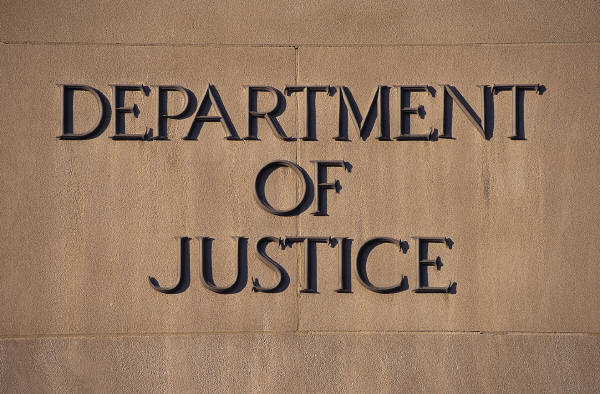I’m shifting gears a bit today. This has been bugging me for awhile. You see, I’m a #1 Bestselling Author on Amazon. Who am I? Nobody really—but that’s the point. Less than a year ago, nobody knew who I was, who Van Stone is or had never heard of The Card. Actually, to be honest, I had not heard of The Card yet either, because I hadn’t come up with the title yet.
How can that happen, you ask? Simple. The world of eBooks has allowed thousands of writers publish their material and either sink or swim in the big world of bookselling. Believe it or not—that may all be about to change.
The Department of Justice (DoJ) has been investigating and may be near filing an antitrust lawsuit against five large trade book publishers and Apple, Inc. A Wall Street Journal article on March 9, 2012, brought to light the potential antitrust case. The DoJ claims that these entities have colluded in adopting a new model for selling eBooks, pioneered by Apple with its program for the sale of iTunes and Apps.
So how does this affect the Indie author? For that, we need a little history.
Traditionally, publishers sold books to retailers at a discount, in the neighborhood of about 50% of the recommended cover price. Retailers set their own prices at or below the cover price. This model created competition among the retailers and everyone was happy. This “wholesale” model is how publishers sold physical books for years. For example, a $25 book would net the publisher about $12.50 and it didn’t matter what the retailer charged for the book.
Amazon thought differently. They knew that you could not build an eBook industry without a device to read an eBook. They intentionally took a loss on eBooks, pricing them at $9.99 and below to entice readers to buy Kindles. For example, they may have paid $12.50 for the book and sold it for less at a loss. With the price point so low, people flocked to buy Kindle’s so they could benefit from the low price of the books.
The nascent indie author industry had yet to make a real impact at this point in the timeline. Amazon’s model involved acquiring the rights to sell bestselling authors at any price and to build an electronic following. We could buy Stephen King or James Patterson at half the price of the brick and mortar book store.
Then walked in Steve Jobs, at that time the CEO of Apple, Inc. When he was about to release the iPad in 2010, he went to the big publishers and offered up an “Agency” model for distribution. In this model, Apple would take a 30% cut and the publisher would set the price of the book.
The higher priced the book, the more profit for the publisher. For example, the same $25 book sold through the iStore netted Apple $7.50 and the Publisher $17.50 minus the colluded royalty price of 17.5% of the net sale. The publisher was set to make more money and of course, the author was making peanuts.

The DoJ case looks at this as collusion by the five publishers and Apple named in the suit. They believe that Apple and the publishers acted together to raise prices across the industry, in essence, price fixing which is a violation of federal antitrust laws.
Now that I’ve given you a bit of history, next week I’ll examine how this affects the indie author and the reader. So tune in next Saturday and I’ll give you my opinion of all of this mess. Maybe, my thoughts will surprise you. I may not have all the answers, but you’ll walk away thinking a little bit more about how it will change your publishing world and maybe your life.
* * * * *
Jim Devitt, the author of the #1 Kindle Bestselling novel, THE CARD is a Contributing Author for Indies Unlimited. For more information, please see the IU bio page or his blog: http://jimdevitt.blogspot.com/[subscribe2]

Interesting article….I look forward to next week….
I eagerly await the next stage of enlightenment.:-) Seriously, though, this is stuff we need to be aware of. Thanks.
Jim, this is an interesting piece. Thank you. So many of us – or at least I – am /are oblivious.
Definitely looking forward to your take on things.
Wow, yeah, been schooled good, here. Well in, Jim.
Very interesting stuff, Jim. Look forward to reading the rest of the story.
Is it going to be a 'do you want the good news or the bad news first' type of follow up? Hopefully good because it's hard going already.
This is need to know information that any writer can profit from.
Thanks.
Ciao,
Patricia